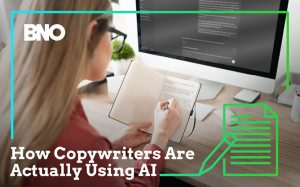Innovate
Understanding the Alphachannel Framework and How AI Is Shaping Customer Perceptions

Tags:
AI, Alphachannel, Brands, Customer Experience Design, Design, Digital, Marketing and Advertising, Technology
In an earlier post, we introduced alphachannel marketing, the invisible AI layer mediating how consumers discover brands. Today, we’re examining Google’s AI Overview feature, a prime example of this phenomenon that has fundamentally transformed search behavior since its launch.
Understanding AI Overview is essential for brands navigating the alphachannel world, where generative AI increasingly controls consumer access to information.
The AI search revolution is here

The transformation of search has accelerated dramatically, defying industry predictions. BrightEdge research reveals that one year after Google’s AI Overviews launch, “total search impressions increased by over 49%” contrary to expectations that AI would diminish traditional search usage. Rather than cannibalizing Google’s dominance, AI has actually expanded the search landscape.
Today, with availability expanded to “more than 200 countries and territories and over 40 languages (as of May 2025, per Google),” this isn’t just feature rollout—it represents a fundamental shift in how billions of people seek information daily.
Perhaps most tellingly, Google CEO Sundar Pichai reported that “people use Search more with AI Overviews and usage grows over time as people learn that they can ask new types of questions.” The data suggests we’re witnessing the emergence of an entirely new search paradigm rather than the death of traditional search.

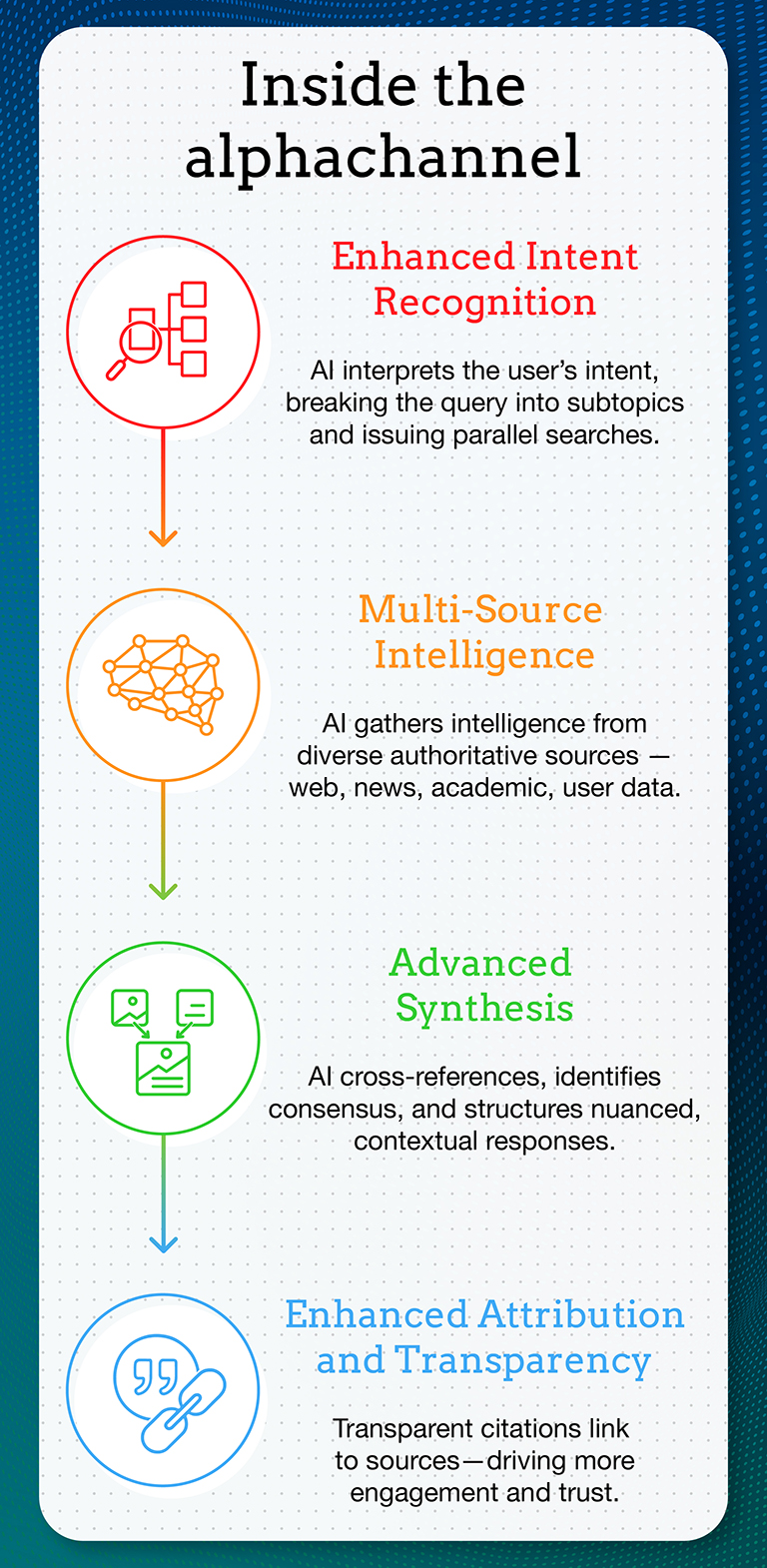
How AI Overview synthesizes information
Google’s AI Overview demonstrates alphachannel mechanics through increasingly sophisticated content synthesis that goes far beyond simple keyword matching:
1. Enhanced intent recognition with AI Mode
The latest evolution extends beyond basic AI Overview functionality. Google’s new AI Mode “uses query fan-out technique, breaking down your question into subtopics and issuing a multitude of queries simultaneously.” This enables search to dive deeper into the web than traditional search ever could, showcasing AI’s evolving role as the primary interpreter of consumer needs.
2. Multi-source intelligence with Gemini 2.5
Google is “bringing a custom version of Gemini 2.5, our most intelligent model, into Search for both AI Mode and AI Overviews.” This significantly improves how AI aggregates and interprets information from authoritative websites, academic sources, news articles, product data, and user-generated content. The result is more nuanced understanding and more accurate synthesis.
3. Advanced alphachannel synthesis
Modern AI Overview has evolved far beyond extracting simple snippets. It now cross-references facts across multiple sources simultaneously, identifies consensus while noting disagreements, and structures information with enhanced contextual understanding. The system can even provide adjustable complexity levels for different audiences, making complex topics accessible without sacrificing accuracy.
4. Enhanced attribution and transparency
While maintaining transparency through citations, the relationship between AI Overview and traffic has proven more symbiotic than feared. Google reports that “links included in AI Overviews get more clicks than if the page had appeared as a traditional web listing for that query.” This creates new opportunities alongside the challenges of reduced brand control over narrative presentation.

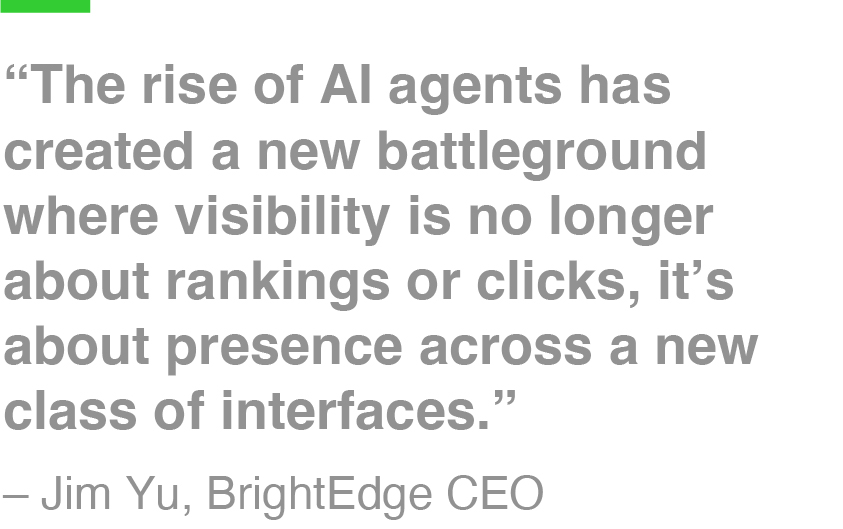
The great search paradigm shift
The contrast between traditional search behavior and our new alphachannel reality illustrates why optimization strategies must evolve. Previously, users would click through to brand websites, giving companies direct control over the messaging and experience. Now, AI synthesizes information directly, often providing comprehensive answers without requiring users to leave the search results page.
Where brands once crafted their messages with complete editorial control, advanced AI models now recontextualize brand information with greater sophistication, combining competitive data, customer reviews, and third-party analysis into unified responses. This shift means that user behavior has evolved from multiple comparison clicks across various websites to receiving comprehensive, adjustable answers in a single interface.
The implications are significant: Google notes that “with AI Overviews, people are visiting a greater diversity of websites for help with more complex questions,” fundamentally reshaping how brand information reaches and influences consumers.
Content authenticity is the new alphachannel currency
The rise of AI-generated content has forced Google to prioritize authenticity in unprecedented ways. The company’s evolved E-E-A-T framework now serves as the foundation for determining which content deserves visibility in AI responses:
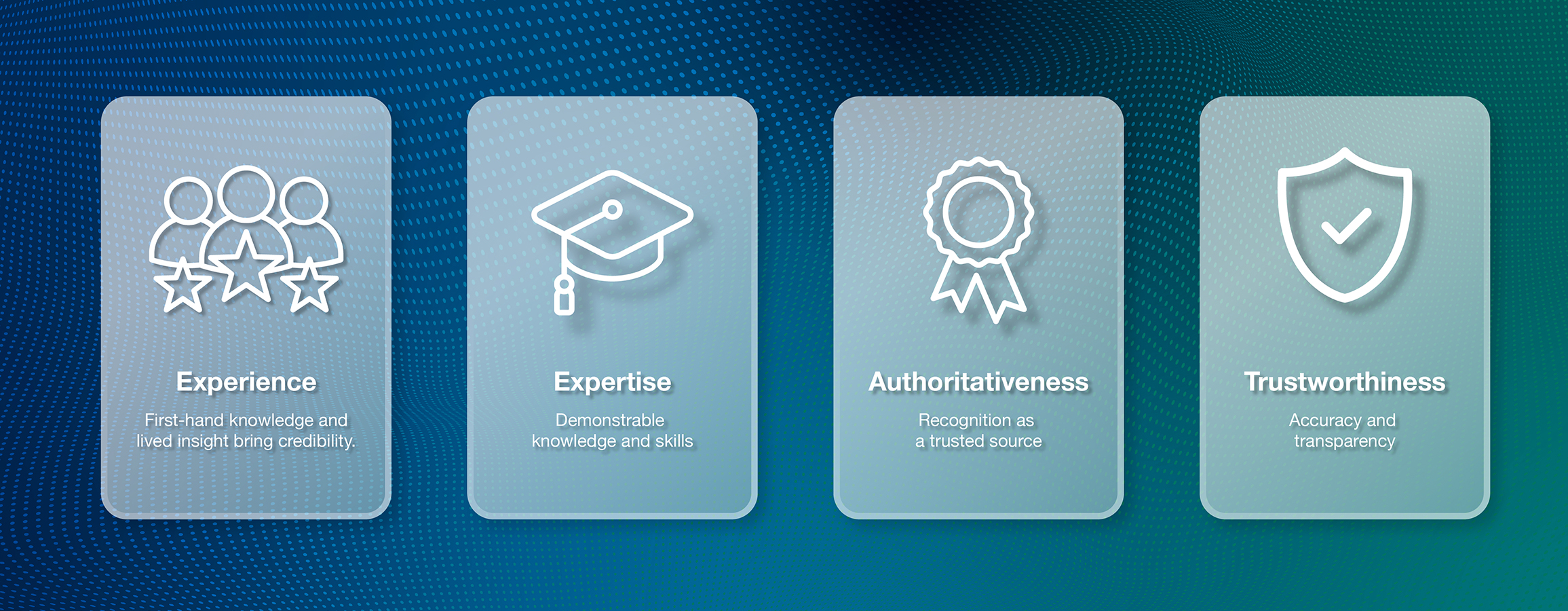
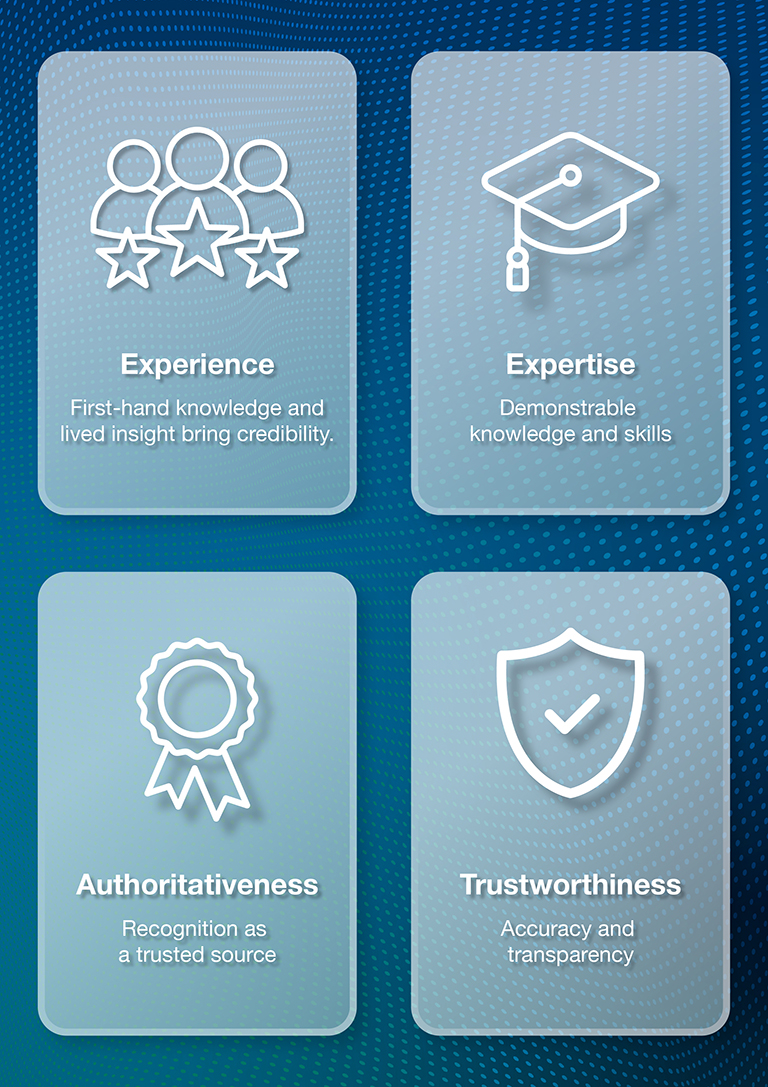
- Experience: First-hand experience with topics
- Expertise: Demonstrable knowledge and skills
- Authoritativeness: Recognition as a trusted source
- Trustworthiness: Accuracy and transparency
This emphasis on authenticity has profound implications for alphachannel strategy. Google’s 2025 Quality Rater Guidelines explicitly address AI-generated content; with automated content potentially earning the lowest ratings when it lacks genuine value or human insight.
However, the nuance matters tremendously. Google’s guidance emphasizes that success in AI search experiences requires focusing “on your visitors and providing them with unique, satisfying content regardless of production method.” The distinction lies not in whether AI assists content creation, but whether the final product demonstrates genuine expertise, original insights, and authentic human experience.
This creates a complex and challenging landscape for content creators. AI tools can enhance productivity and help structure information, but the content must ultimately reflect real expertise and provide unique value. Alphachannel marketing rewards content that combines the efficiency of AI assistance with the irreplaceable elements of human knowledge and experience.
What determines AI Overview selection
Understanding how AI Overview selects content reveals that authority and authenticity have become more critical than ever. The selection criteria have evolved beyond traditional SEO signals to encompass more sophisticated measures of content quality and source credibility.
Authority signals continue to dominate selection criteria. Research shows AI Overview “overwhelmingly favor[s] large, authoritative domains with extensive organic visibility and robust backlink profiles.” Without established domain authority, brands essentially become invisible at the critical moments when consumers are forming opinions and making decisions.
The role of backlinks has intensified rather than diminished. Studies confirm that “strong backlinks are widely recognized as important for SEO, our experience suggests they are equally critical for increasing the likelihood of being cited in AI Overviews.” The quality-over-quantity principle has never been more important, with one authoritative link carrying significantly more weight than numerous low-quality connections.
Traditional ranking position remains a prerequisite for consideration. Research indicates that “Google’s AI pulls content primarily from the top 10, or at most, the top 20 results on the SERP.” However, ranking well no longer guarantees inclusion—it’s merely the entry requirement for AI Overview consideration.
The new differentiator is content authenticity. AI increasingly favors content with clear authorship and expertise signals, original insights and unique perspectives, comprehensive and well-structured information, and natural, conversational language that addresses specific user needs while demonstrating first-hand experience with topics.
Building your advanced alphachannel strategy
Success in the evolved alphachannel landscape requires a multifaceted approach that combines traditional authority building with cutting-edge authenticity optimization.
Establishing authentic authority means going beyond basic link building to create genuinely valuable resources that other experts naturally want to reference. This involves developing authentic thought leadership with named experts who can speak with credible authority on topics and executing strategic digital PR that emphasizes real expertise rather than promotional messaging.
Optimizing for advanced AI comprehension requires implementing clear content hierarchies that sophisticated AI models can parse and understand. This means defining unique value propositions with specific, measurable benefits rather than vague marketing claims, and using comprehensive schema markup that includes authorship and expertise signals. Building topic clusters that demonstrate deep, authentic expertise across related subjects helps establish your brand as a legitimate authority in AI systems’ understanding.
The content authenticity framework represents perhaps the most crucial element of modern alphachannel strategy. This means ensuring AI-assisted content includes genuine human insights and experience rather than purely algorithmic generation. Providing unique research and data that AI systems recognize as valuable helps differentiate your content from the growing sea of generic information. Clear attribution and authoritative authorship for all content builds the trust signals that AI systems increasingly prioritize. Finally, documenting real experience through specific examples and case studies demonstrates practical application rather than theoretical knowledge.
The future of brand health measurement
Alphachannel assessment now provides predictive insights that extend far beyond traditional metrics, offering early warning systems for reputation management and competitive positioning.
When brands achieve high alphachannel visibility combined with strong authenticity signals, it indicates sustainable competitive advantage that’s difficult for competitors to replicate quickly. Conversely, when expertise is high but alphachannel visibility remains low, it suggests significant untapped potential for AI visibility optimization that can be addressed through strategic content and authority building.
Perhaps most importantly, AI misrepresentation serves as an early warning system for reputation risks that require immediate attention. Because AI systems often reflect emerging sentiment before it fully manifests in traditional metrics, monitoring alphachannel representation can help brands identify and address potential issues before they damage customer relationships.
The competitive intelligence possibilities have also expanded dramatically. Brands can now compare their AI presence across traditional AI Overview results, advanced AI Mode responses, and international AI Overview implementations while benchmarking content authenticity signals against competitors to identify strategic opportunities.
The expanded alphachannel reality
As BrightEdge CEO Jim Yu observes: “The rise of AI agents has created a new battleground where visibility is no longer about rankings or clicks, it’s about presence across a new class of interfaces.” This observation captures the fundamental shift we’re witnessing in digital marketing.
Google’s continued innovation with Gemini 2.5 integration and AI Mode development signals that the alphachannel marketing will only become more sophisticated and influential. The brands that establish authentic authority now, combining technical optimization with genuine expertise and original insights, will dominate AI responses across this rapidly expanding ecosystem.
Adopting an alphachannel mindset represents more than just a new marketing channel to optimize. It’s redefining how brands connect with consumers through authentic, AI-mediated experiences that prioritize genuine value and expertise over promotional messaging. Success requires moving beyond traditional SEO tactics to embrace content authenticity, expert authority, and sophisticated AI optimization strategies.
The window of opportunity for establishing alphachannel leadership is narrowing as competition intensifies and AI systems become more discerning. Brands that act decisively now to build authentic authority and optimize for AI visibility will secure lasting advantages in this new paradigm. Those that continue to rely on outdated strategies risk becoming invisible precisely when consumers are making their most important decisions.
Is your brand building the authentic authority and advanced optimization needed for alphachannel leadership? The time to act is now.
For insights on developing authentic alphachannel strategies and comprehensive brand health assessments, reach out to learn how we can help you evaluate your readiness for alphachannel marketing and build a strategy that positions you ahead of the curve.
FAQ
Q: What percent of searches show AI Overviews?
A: Between 10% and 30%, depending on dataset and date—for example: 11% (BrightEdge, May 2025), 13.14% (Semrush, Mar 2025), 10.4% (seoClarity, Mar 2025), and ~30% (SE Ranking, May 2025).
Q: How many people use AI Overviews?
A: Google reports over 2B monthly users as of May 2025.
Q: Did usage grow after launch?
A: Yes. Google reports >10% growth for AIO-eligible query types in large markets (U.S., India).
Q: Do AI Overviews reduce organic clicks?
A: Google says AIO links can get more clicks than traditional listings, but independent 2025 studies show lower overall CTR when AIO appears.
Q: Where do AI Overviews get their sources?
A: Primarily from high-ranking pages: ~76% top-10 (Ahrefs) and ~97% overlap with top-20 (seoClarity), varying by vertical and updates.
Q: Do Quality Rater Guidelines penalize AI content?
A: Yes—scaled, low-value automated content may receive Lowest ratings; E‑E‑A‑T still applies.
Q: What model powers AI Overviews?
A: A custom version of Gemini 2.5 integrated into Google Search.
Q: Is AI Mode different from AI Overviews?
A: Yes—AI Mode uses query fan-out for exploratory multi-hop reasoning beyond a static overview.
Q: What has been the impact on impressions?
A: Impressions are up ~49% YoY (BrightEdge) while CTR is down ~30% since AIO’s launch.
Q: Is AI Overviews available globally?
A: Yes—in more than 200 countries/territories and over 40 languages as of May 2025.


